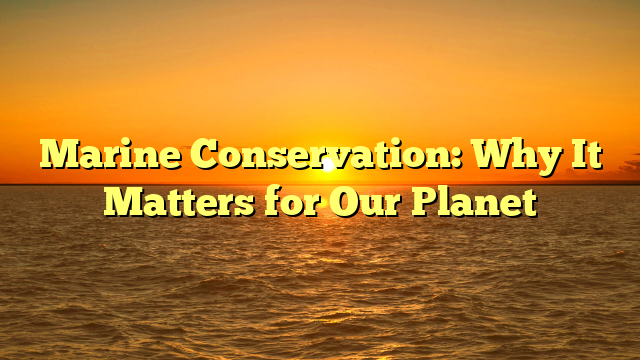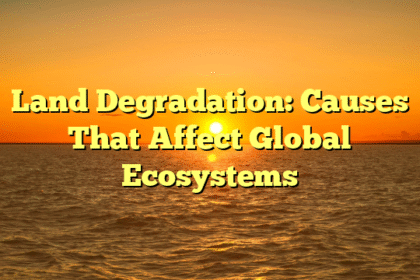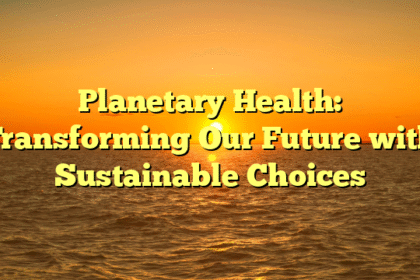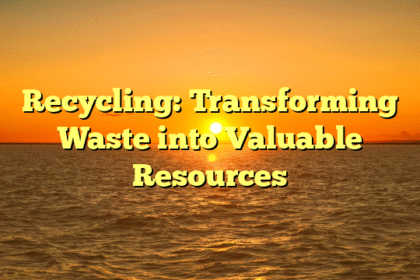Marine Conservation
In the vast tapestry of Earth’s ecosystems, the oceans hold an irreplaceable role. Covering over 70% of the planet, they are home to an astonishing variety of life forms, many of which are still undiscovered. However, marine environments are under threat, and attention to marine conservation has never been more crucial.
Understanding its significance not only helps to preserve biodiversity, but it also fosters safer, more sustainable ecosystems that impact the planet as a whole. In this article, we’ll dive deep into the importance of marine conservation, the threats our oceans face, and how individuals can make a significant impact.
The Importance of Marine Conservation

1. Biodiversity: The Ocean’s Treasure Trove
Oceans are home to more than 230,000 known species, ranging from the smallest plankton to the largest whales. This biodiversity contributes to complex ecosystems that offer numerous benefits, including:
-
- Food Security: A vast portion of the global population relies on fish as a primary protein source. Sustainable fish populations are essential to ensure food security, especially in developing countries.
-
- Medicinal Resources: Many marine organisms possess unique biochemical properties, making them potential sources for new pharmaceuticals. Coral reefs, for instance, have yielded compounds that can combat cancer and other diseases.
-
- Climate Regulation: Oceans play a vital role in regulating the Earth’s climate. They act as carbon sinks, absorbing significant amounts of carbon dioxide and thus helping to mitigate climate change.
The importance of preserving biodiversity is clear; it holds keys to not just our health but also the health of our planet.
2. Ecosystem Services: The Ocean’s Gifts
Marine ecosystems provide countless services that are critical to human survival and well-being. Here are some key ecosystem services facilitated by healthy oceans:
-
- Coastal Protection: Mangroves, coral reefs, and sea grasses serve as natural barriers against storm surges and erosion, offering vital protection to coastal communities.
-
- Recreation and Tourism: Healthy marine environments are important for tourism, providing recreational activities such as scuba diving, snorkeling, and fishing. These industries not only boost economies but also promote awareness of the importance of marine conservation.
-
- Oxygen Production: Marine plants, particularly phytoplankton, contribute nearly 50% of the world’s oxygen supply. Preserving marine habitats means safeguarding the air we breathe.
Acknowledging these services emphasizes why marine conservation is integral to sustaining human life and the health of the planet.
Threats to Marine Environments
3. Overfishing: A Looming Crisis
One of the most pressing threats to marine environments is overfishing. With an increasing global population, the demand for seafood has skyrocketed. Unfortunately, this has led to:
-
- Depleted Fish Stocks: Many fish species are now at risk of extinction, which disrupts the food chain and threatens entire ecosystems.
-
- Bycatch: The unintended capture of non-target species—including dolphins, sea turtles, and seabirds—has detrimental impacts on marine biodiversity.
4. Pollution: A Growing Concern
Marine pollution comes from various sources, including plastic waste, oil spills, and chemical runoff. Here are ways pollution threatens our oceans:
-
- Microplastics: Tiny plastic particles are finding their way into marine food chains, leading to potential health risks for humans and animals alike.
-
- Eutrophication: Excess nutrients from fertilizers lead to algal blooms that deplete oxygen in water, resulting in “dead zones” where aquatic life cannot survive.
5. Climate Change: The Unseen Threat
Climate change is transforming the oceans, causing rising temperatures and altering marine habitats. The consequences include:
-
- Coral Bleaching: Higher sea temperatures cause corals to expel the algae that provide them with nourishment, leading to widespread coral death.
-
- Sea Level Rise: Coastal habitats are disappearing due to rising sea levels, which threatens both marine and terrestrial ecosystems.
The impact of these threats stresses the urgency of prioritizing marine conservation on a global scale.
Actionable Insights for Marine Conservation
6. Individual Actions: Every Bit Counts
If you’re wondering how you can contribute to marine conservation, here are some actionable steps to consider:
-
- Make Sustainable Choices: Opt for sustainably sourced seafood. Look for labels like Marine Stewardship Council (MSC) or Aquaculture Stewardship Council (ASC).
-
- Reduce Plastic Use: Minimize single-use plastics by using reusable bags, bottles, and containers.
-
- Support Organizations: Get involved with or donate to marine conservation organizations that align with your values.
7. Community Engagement: Local Efforts Matter
Working together with your community can amplify efforts for marine conservation. Consider these actions:
-
- Beach Cleanups: Organize or participate in local beach cleanup events to remove trash and prevent pollution from entering the ocean.
-
- Awareness Campaigns: Educate friends and family about the importance of marine conservation through workshops or social media.
-
- Advocacy: Lobby for local policies that promote marine protected areas and sustainable practices in fisheries and coastal development.
8. Collaborate on Solutions: Think Globally
On a broader scale, collaboration is essential for effective marine conservation. Governments, NGOs, businesses, and individuals need to unite to tackle the challenges facing marine ecosystems. Engage in global initiatives focused on sustainable fishing practices, pollution reductions, and climate action.
Conclusion
As we delve deeper into the importance of marine conservation, the message is clear: our oceans are invaluable resources that require immediate and sustained attention. By understanding the threats they face and taking actionable steps, we can protect these ecosystems not just for ourselves but for future generations.
Whether through individual actions, community efforts, or global initiatives, each of us can play a vital role in promoting marine conservation. Let’s work together to ensure that our oceans continue to thrive, supporting both biodiversity and human life on our planet.
Through our combined efforts, we can turn the tide on challenges facing marine environments. Let’s make marine conservation a priority—our oceans deserve it!







